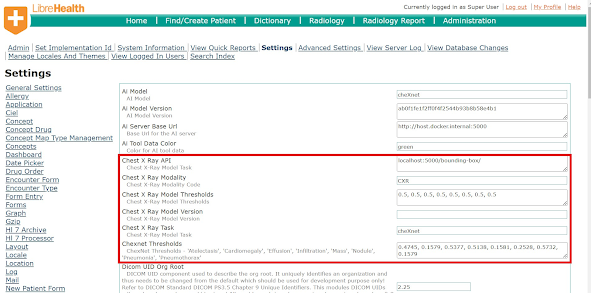My First GSoC - LibreHealth Community Bonding Period
GSoC Acceptance
I was amazed to know that I got accepted into Google Summer of Code 2023. This is my first time applying and getting into GSoC. I remember the time when I sat at the library for hours, working on the preliminary tasks, figuring out solutions, and writing an extensive proposal. Reiterating through the solution and proposal back and forth, I watched lots of YouTube videos and read blogs providing tips to draft a good proposal. All the efforts paid off when I received the email of acceptance.
The Org & Project
I drafted a proposal to the LibreHealth Organization. LibreHealth is collaborative community for free & open source software projects in Health IT, and is a member project of Software Freedom Conservancy. It is amazing to just think about how contributors from all over the world come together and build things that impact the world positively. This idea is what brought me into open source.
Before jumping into the project details, here are a few things about me,
I come from India and at the time of writing this blog I am currently a student pursuing my masters in data science. I did my bachelors in India and majored in Mechanical engineering. A mechanical engineer to a data science enthusiast? I worked in IT after getting my Bachelor's degree. A new found passion for coding started when I was able to simply automate emailing a set of system status reports. Just a few lines of shell scripting and SQL commands. From there I worked as an Analyst to a Data Scientist and now back to a student.
The Project I'll be contributing to this summer through GSoC is "AI Model Service Auto Selection by Modality"
Breaking it down,
One of the Organization's initiative is the "LibreHealth Radiology" Project. Through this LibreHealth aims at adding capabilities of a Radiology Information system (RIS) into LibreHealth Toolkit. The RIS application has a host of tools and capabilities for Radiologists. The RIS service interacts with a modular AI web service that enables all things AI in the RIS. The outputs of the AI model service are integrated with the DICOM viewer and study lists in the RIS application.
Through the GSoC project,
A range of computer vision models will be integrated to the AI model service. The outputs from the models will be pushed to the DICOM viewer as multi-label outputs, bounding boxes, segmentations (whichever is applicable for a modality) on the radiology imaging modalities (CXR, Mammo, Head CT, Abdomen CT).
One of the preliminary tasks for the project was to integrate an AI model for an existing modality and show the output in JSON format. I used a Prebuilt PyTorch model that classifies the type of tumor in the brain CT if it exists. I used this repository for the model weights and model architecture. In this repository a resnet50 model was used and transfer learning was done on the brain tumor dataset.
As an International Student
There are many international students here in the U.S who would like to participate in GSoC and there is limited information available on how to proceed with CPT. In my case beforehand I knew that Google would not provide any sort of CPT authorization assistance and so I went and talked to my University's Office of International Affairs to clarify my eligibility for CPT if I get selected to GSoC. Although I was told I had nothing to worry about I still faced a few issues. For my fellow international students who might face the same issues, here are a few pointers,
- Talk to your Office of International Affairs beforehand on CPT eligibility. Check with them if there may be any issues with the start date and end date of GSoC since sometimes Universities may have a hard deadline on CPT. In my case there was a hard deadline. Fortunately I was able to extend my CPT to the next semester. It might not be the case with other Universities.
- If your University's international office requires CPT letter or a letter of guarantee, talk to the organization prior to even proceeding with the proposal and preliminary tasks. They might be able to assist. It would be bad if you find out you are not eligible for GSoC after getting accepted.
A Rocky Start
It is important to maintain a good relationship with your mentors and follow rules strictly. I had overlooked one of the rules of my Org and it impacted me negatively. Although I've had a rocky start, the community has been supportive and I hope to complete the project successfully and build good relations with my mentors and admins. I would suggest fellow future GSoC applicants to closely be involved with the community. It helps you reach out to people and build trust within the community.
What's Next?
Right now in the community bonding period I and my fellow GSoC members have introduced ourselves to the community. As next steps I have setup the application on my system and have revisited and deep dived through the code base.
I have requested to meet with the mentors to understand deviations that will be required from my proposal and plan the timelines. I will also be brainstorming implementation ideas. Planning the implementation requirements will be important during this phase.
Overall I am more than grateful for the opportunity I have received. This will be a great experience in my journey towards open source contribution and I hope to learn more.


Comments
Post a Comment